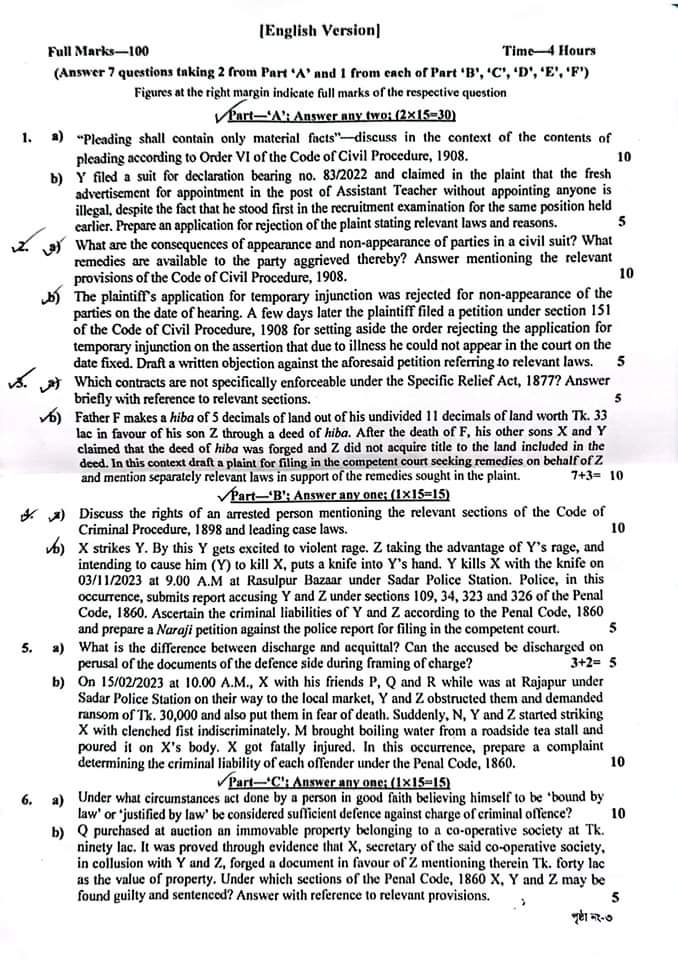TEESTA RIVER WATER SHARING: A BOIL IN INTERNATIONAL RELATION BETWEEN INDIA AND BANGLADESH
Introduction:
Teesta is the fourth largest trans-boundary river shared between India and Bangladesh after Padma, Brahmaputra, and Meghna rivers. This river of 414km length flows through the Indian states of West Bengal and Sikkim before going to the Bay of Bengal through Bangladesh.
Origin of the Dispute:
The dispute regarding water sharing was started when West Bengal government began constructing barrage on the river in 1979 mainly for irrigation purposes. The objection brought by Bangladesh could not be held irrational because it has caused scarcity of water for irrigation and low rice production specially, in northern part of the country. The construction of barrage is also responsible for drying up at different points during the dry season which threatening the boro cultivation in six northern districts of our country. As the ratio of Teesta water sharing between India and Bangladesh is 83:17, the disputes are based on this unequal distribution of water between these two countries. However, Bangladesh wants 50% water between December and May to facilitate and prevent the destruction of irrigation.
Initiatives for resolution taken so far:
Till the date, there is only concluded treaty on this vital issue. Agreement on Ad-Hoc sharing of Teesta water was concluded between India and Bangladesh in 1983 having validity until 1985. Accordingly, Bangladesh and India were allocated to share 36% and 39% of the water flow respectively and rest 25% remained un-allocated. An interim deal was supposed to be signed by the then prime minister of India, Manmohon Singh in 2011 giving India 42.5% Bangladesh 37.5% of Teesta’s water for 15 years. But the deal could not be concluded due to objection brought by Mamata Banarjee, CM of West Bengal.
Analysis of the issue under International Law:
The
International Law Association specifies that every riparian state is entitled
to a reasonable and equitable share in the beneficial uses of waters of
international drainage basin. (Helsinki Rules, 1966) This principle of
reasonable and equitable share was incorporated in The 1997 UN Convention on
the Law of Non- Navigational Uses of International Watercourses. As article
5 puts it thus:
“Watercourse
States shall in their respective territories utilize an international
watercourse in an equitable and reasonable manner. And States shall participate
in the use, development and protection of an international watercourse in an
equitable and reasonable manner.”
Article
7 of the said UN Convention of 1997 recognizes no ‘harm
principle’ of international law and puts it thus:
“Watercourse
States shall, in utilizing an international watercourse in their territories,
take all appropriate measures to prevent the causing of significant harm to
other watercourse States.”
The
principle is also recognized under customary international law. For example, in
Trail Smelter Arbitration (1949) ICJ held that:
“No
State has right to use or permit the use of its territory in such a manner as
to cause injury to other territory”.
However, the aforementioned international instruments and customary international law recognize that Bangladesh as riparian state has an absolute right on Teesta’s water.
Impact of the dispute on the relation of these two neighboring countries:
Though the cooperation between the two nations facilitated the finalization of land boundary agreement, the rejection of the Teesta Treaty to be signed shall make a negative impact on the relationship between these two states. In the absence of adoption or observation of such treaty the peace and security in this regional level is at stake. The SAARC Charter, 1985 does not confer any efficacious procedure of settlement of such bilateral dispute at regional level. In this respect, the states can make their own mechanism to address such bilateral issues. However, According to the mandate of UN Charter 1945, for the maintenance of peace and security enunciated in the preamble, the member states are obliged to maintain cooperation in maintenance of international peace and security.
Concluding Remarks:
Considering importance of Bangladesh and as a responsible upper riparian state, India needs to take proactive steps for early conclusion of Teesta agreement. Otherwise Bangladesh can seek remedy by an international arrangement, as earlier, Indo-Pakistan Krishenganga water sharing dispute was settled under the arrangement World Bank as a third party.






